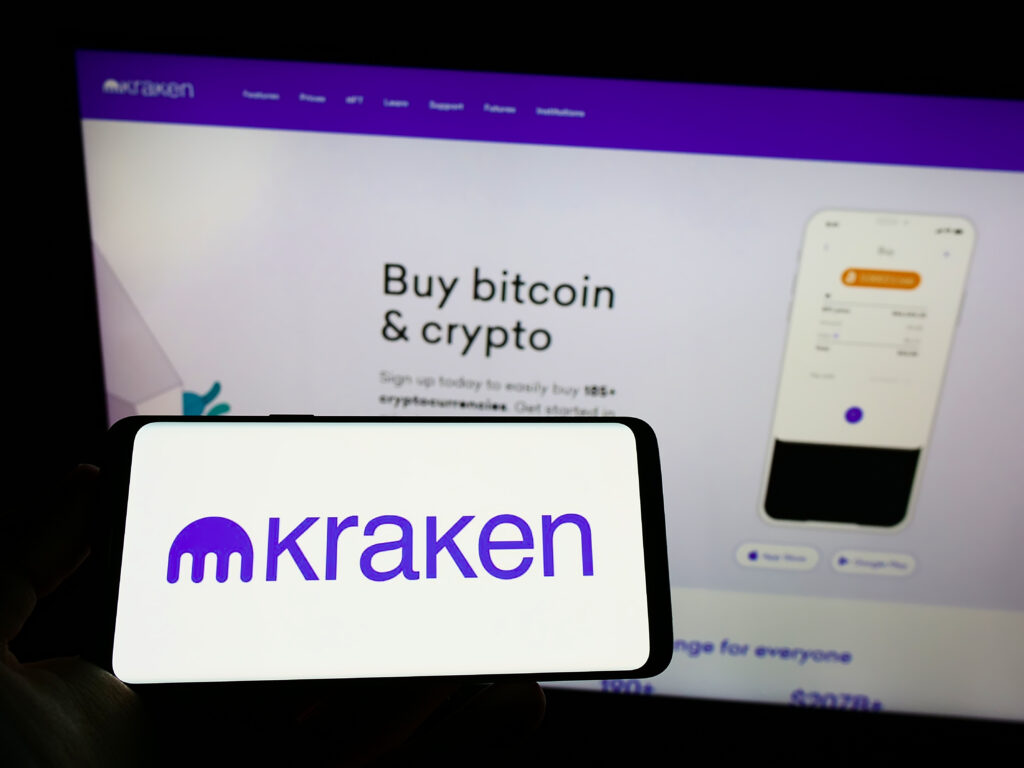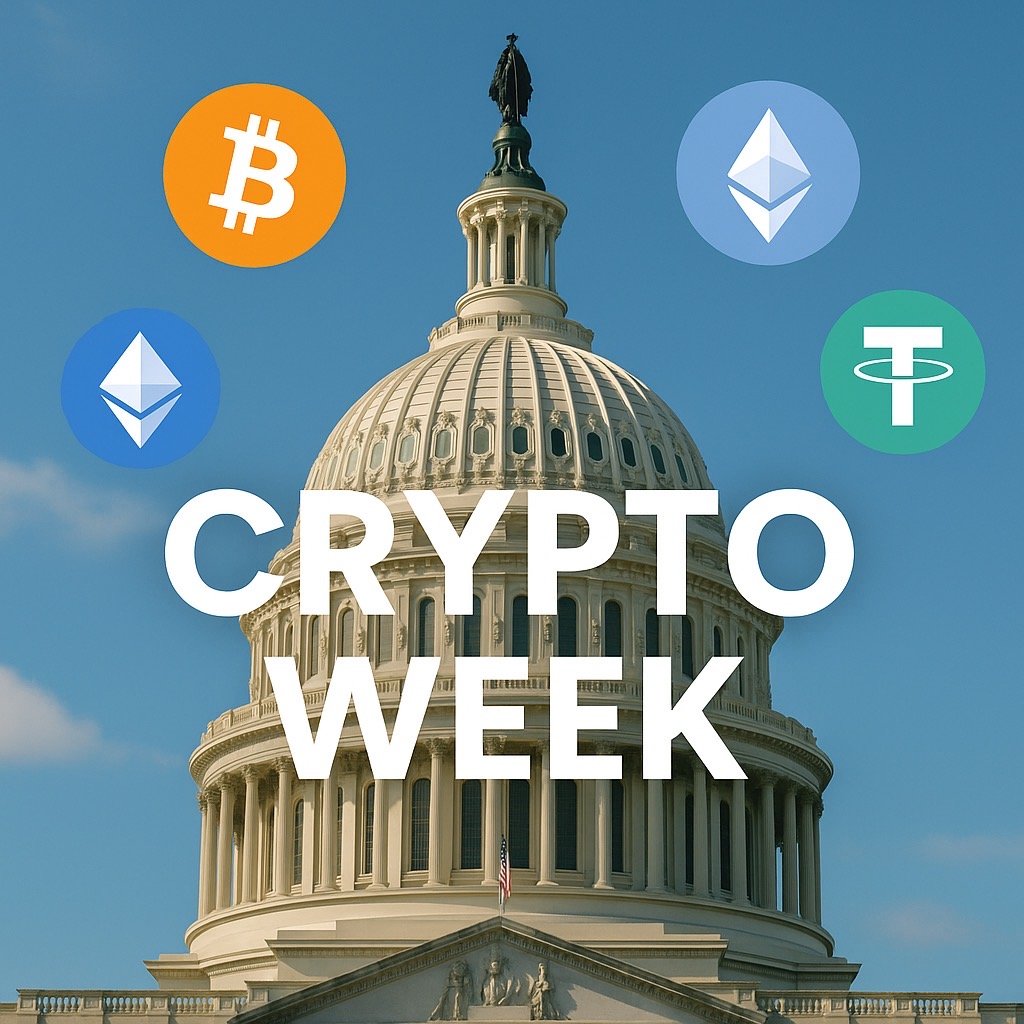CLARITY Act explained: What it means for Crypto Week and beyond
In a long-awaited move, Congress is stepping decisively into the crypto conversation with Crypto Week, a landmark moment that could reshape the future of digital assets in the United States. At the heart of the legislative spotlight lies the CLARITY Act, short for the Digital Asset Market Structure Clarity Act, designed to bring much-needed definition to a fragmented and often contentious regulatory landscape.

The CLARITY Act, which is based on the 21st Century Financial Innovation and Technology Act and is a market structure bill, aims to answer a long-debated question: Who regulates crypto in the United States — the Securities and Exchange Commission (SEC), or the Commodities Futures and Trading Commission (CFTC)?
It was introduced on May 29, 2025, by Representative French Hill, a Republican from Arkansas who serves as chair of the House Financial Services Committee. The key provisions of the act include:
These provisions are meant to eliminate confusion around digital asset classification and create a more predictable compliance environment for crypto businesses and investors.
Under the CLARITY ACT, projects can use a streamlined path to raise capital through token sales, but only if they meet strict conditions like using a functional blockchain within 12 months and showing decentralization progress.
The CLARITY Act’s goal is to replace ambiguity with structure and finally unlock regulatory harmony in the US.
For years, the crypto industry has been caught in a regulatory gray zone. Token projects, exchanges and investors have struggled with inconsistent enforcement actions, unclear rules and lawsuits that span federal courts.
The SEC’s enforcement-first approach, including high-profile lawsuits against major exchanges, has drawn criticism for stifling innovation and offering little proactive guidance. At the same time, the CFTC has shown interest in overseeing crypto derivatives and commodities but lacked authority over spot markets.
The CLARITY Act addresses this head-on by:
The act also aligns with growing public support for digital financial services, especially as decentralized finance (DeFi), non-custodial wallets, and blockchain applications gain traction among everyday users.
While often crypto-friendly, SEC Commissioner Hester Peirce warns that token classification shouldn’t exempt digital assets from securities law. She argues that many projects still involve investor funding and central control, meaning they should remain under SEC scrutiny, even if tokens later become tradable or decentralized.
AFR, Hester Peirce, Timothy Massad, Elizabeth Warren and top Democrats all criticize the CLARITY Act for weakening SEC oversight, creating regulatory confusion, and enabling Big Tech to sidestep investor protections.
Here’s why critics say the CLARITY Act puts investors at risk:
A new classification called “restricted digital assets” is introduced by the CLARITY ACT, limiting their resale unless specific criteria are met, aiming to prevent unregulated secondary market trading.
The CLARITY Act is being debated during Washington’s 'Crypto Week,' a period focused on digital asset policy with several bills under review.
This synchronized legislative push shows that lawmakers are increasingly viewing digital assets as a strategic sector that requires thoughtful rules rather than reactive enforcement.
Officially introduced as H.R. 3633, the CLARITY Act has already been approved by both the House Agriculture Committee and the House Financial Services Committee. If the CLARITY Act passes in the House, it faces scrutiny in the Senate, where support is growing but not guaranteed.
However, cryptocurrency-related bills backed by US President Donald Trump, including the GENIUS Act regulating stablecoins, failed to pass a key procedural vote in the House of Representatives. Despite Trump urging Republicans to support the measures, at least 13 opposed the resolution. The GENIUS Act had earlier passed the Senate with bipartisan backing.
In response to Republican-backed crypto legislation, Democratic leaders launched an “anti-crypto corruption week” calling for amendments to include consumer protections and ethical safeguards. They aim to prevent the president, vice president, and members of Congress from holding or promoting cryptocurrencies, citing potential conflicts of interest. The push follows scrutiny of Trump’s ties to a family-backed crypto firm, raising concerns about foreign influence and ethical violations related to stablecoin legislation.
Meanwhile, the White House has maintained a cautiously optimistic stance but is expected to push for revisions through executive agencies should the bills move forward.

However, even in its current form, the bill marks a major milestone:
- It reduces legal risk for innovators and investors.
Whether signed into law in 2025 or adjusted over the coming months, the CLARITY Act’s impact will be felt long after Crypto Week ends.
In a sector that thrives on trust and technology, regulatory clarity is the foundation upon which the next generation of digital finance will be built.
You may also like...
Diddy's Legal Troubles & Racketeering Trial

Music mogul Sean 'Diddy' Combs was acquitted of sex trafficking and racketeering charges but convicted on transportation...
Thomas Partey Faces Rape & Sexual Assault Charges

Former Arsenal midfielder Thomas Partey has been formally charged with multiple counts of rape and sexual assault by UK ...
Nigeria Universities Changes Admission Policies

JAMB has clarified its admission policies, rectifying a student's status, reiterating the necessity of its Central Admis...
Ghana's Economic Reforms & Gold Sector Initiatives

Ghana is undertaking a comprehensive economic overhaul with President John Dramani Mahama's 24-Hour Economy and Accelera...
WAFCON 2024 African Women's Football Tournament

The 2024 Women's Africa Cup of Nations opened with thrilling matches, seeing Nigeria's Super Falcons secure a dominant 3...
Emergence & Dynamics of Nigeria's ADC Coalition

A new opposition coalition, led by the African Democratic Congress (ADC), is emerging to challenge President Bola Ahmed ...
Demise of Olubadan of Ibadanland
Oba Owolabi Olakulehin, the 43rd Olubadan of Ibadanland, has died at 90, concluding a life of distinguished service in t...
Death of Nigerian Goalkeeping Legend Peter Rufai

Nigerian football mourns the death of legendary Super Eagles goalkeeper Peter Rufai, who passed away at 61. Known as 'Do...



